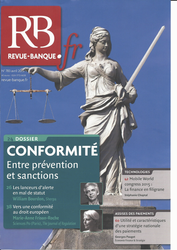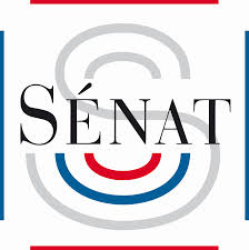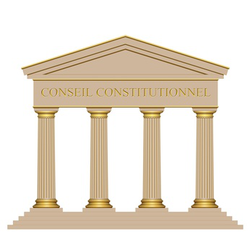Thesaurus : Doctrine

► Full Reference: Segonds, M., Compliance, Proportionality and Sanction. The example of the sanctions taken by the French Anticorruption Agency, in Frison-Roche, M.-A. (ed.),Compliance Monumental Goals, series "Compliance & Regulation", Journal of Regulation & Compliance (JoRC) and Bruylant, to be published.
___
► Article Summary: Before devoting the developments of his article to the sole perspective of sanctions imposed under "Anti-corruption Compliance", the author recalls in a more general way that, as is the sanction, Compliance is in essence proportional: Proportionality is inherent to Compliance as it conditions any sanction, including a sanction imposed under Compliance.
This link between Proportionality and Compliance has been underlined by the French Anti-Corruption Agency (Agence française anticorruption - AFA) with regard to risk mapping, which must measure risks to arrive at effective and proportional measures. This same spirit of proportionality animates the recommendations of the AFA which are intended to apply according to the size of the company and its concrete organisation. It governs sanctions even more, in that punitive sanctions refer on one hand to Criminal Law, centered on the requirement of proportionality. Punitive sanctions It governs sanctions even more, in that punitive sanctions refer on the other hand to the disciplinary power of the manager who, from other sources of law, must integrate the legal requirement of proportionality when he/she applies external and internal compliance norms.
____
_______
Sept. 1, 2022
Thesaurus : Doctrine

► Référence complète : M. Segonds, "Compliance, proportionnalité et sanction" ("Compliance, proportionality and sanction"), in M.-A. Frison-Roche (ed.), Les Buts Monumentaux de la Compliance, coll. "Régulations & Compliance", Journal of Regulation & Compliance (JoRC) and Dalloz, 2022, p. 231-244.
____
📕read a general presentation of the book, Les Buts Monumentaux de la Compliance, in which this article is published
____
► Summary of the article (done by the Journal of Regulation & Compliance): Before devoting the developments of his article to the sole perspective of sanctions imposed under "Anti-corruption Compliance", the author recalls in a more general way that, as is the sanction, Compliance is in essence proportional: Proportionality is inherent to Compliance as it conditions any sanction, including a sanction imposed under Compliance.
This link between Proportionality and Compliance has been underlined by the French Anti-Corruption Agency (Agence française anticorruption - AFA) with regard to risk mapping, which must measure risks to arrive at effective and proportional measures. This same spirit of proportionality animates the recommendations of the AFA which are intended to apply according to the size of the company and its concrete organisation. It governs sanctions even more, in that punitive sanctions refer on one hand to Criminal Law, centered on the requirement of proportionality. Punitive sanctions It governs sanctions even more, in that punitive sanctions refer on the other hand to the disciplinary power of the manager who, from other sources of law, must integrate the legal requirement of proportionality when he/she applies external and internal compliance norms.
________

Updated: Dec. 24, 2020 (Initial publication: July 15, 2020)
Publications

This Working Paper has been the basis for the first conference of the two conferences in the colloquium in Toulouse (France) under the scientific direction of Lucien Rapp, about Les incitations, outils de la Compliance ("Incitations, as Compliance Tools"), on December 12, 2019, the first one about The sanction as incitation and the second one about Incitations and Compliance Law (synthesis of this colloquium).
Then, it has been the basis for the article, to be published in the books Les outils de la Compliance and Compliance Tools in the Series Régulations & Compliance.
Read a general presentation of this book.
Summary and Introduction of this Working Paper: At first glance, Compliance and Incentives appear to be totally opposite. For two major reasons. In the first place, because the sanctions have a central place in the Law of Compliance and the incentives suppose an absence of constraint on the operators. Secondly, because the incentives are linked to self-regulation and that Compliance Law assumes a strong presence of public authorities. Taking the first reason, one should choose: either Compliance or Incentives! Either the effectiveness of one or the effectiveness of the others; either the techniques of one or the techniques of others; either the philosophy of one or the philosophy of the others. Resign oneself to the loss that such a necessary choice would involve. But to put the terms thus amounts to think poorly about the situations and reduce the fields of the solutions which they call for. If we take a rich definition of Compliance Law, it is possible on the contrary to articulate Compliance and Incentives. From this perspective, sanctions can no longer become what blocks the use of incentives but, on the contrary, what constitutes them. Even more, the coupling between Incentives and the requirements of Compliance Law must be strongly encouraged, as soon as the public authorities supervise in Ex Ante all the initiatives taken by the "crucial operators".
This working document deals with the first issue
An honest observer can only feel immediately uneasy. Indeed, he can only raise the definition of the sanction as a "constraint" triggered Ex Post, at the very heart of Compliance Law which is presented as a set of Ex Ante mechanisms. Based on this contradiction in terms, should we give up the association and think that it would be wrong against the spirit to think of the sanction as an incentive?
It is undoubtedly in this connection that one perceives most clearly the clash of two cultures, which do not communicate, while technically they apply to the same situations. Indeed, because Compliance was firstly designed by Finance, everything is a tool for it. Therefore, the tendancy to think about the sanction only as an incentive is very strong in Compliance Law. It manifests itself continuously and will not stop (I). But whatever the reasons are to conceive it this way, the principles of the Rule of Law cannot disappear and if we do not want them to be erased, then they must be articulated (II). It’s an essential adjustment.
This is why we can literally say that Compliance has set Criminal Law on fire by its conception, logical but closed in on itself, of sanctions as simple incentives. For Law to remain, however, it is necessary to hold a very firm definition of Compliance Law centered on its Monumental Goal, which is the protection of the person.
La seconde problématique est analysée in "Compliance et Incitation : un couple à propulser", 2020.

Updated: Dec. 21, 2020 (Initial publication: Dec. 11, 2019)
Publications

This working document serves as the basis for two conference given in the symposium made under the direction of Lucien Rapp, Les incitations, outils de la Compliance ("Incitations: Compliance Tools").
Référence : Frison-Roche, M.-A., Compliance et Incitations : un couple à propulser, in Faculté de droit de l'Université Toulouse-Capitole, et Journal of Regulation & Compliance (JoRC),Les incitations, outils de la Compliance, 12 décembre 2019, Toulouse.
This Working Paper has been the basis for two conferences in the colloquium in Toulouse (France) under the scientific direction of Lucien Rapp, about Les incitations, outils de la Compliance ("Incitations, as Compliance Tools"), on December 12, 2019, the first one about The sanction as incitation and the second one about Incitations and Compliance Law (synthesis of this colloquium). sur le thème de la sanction comme incitation, la seconde en synthèse de ce colloque sur
After it has been the basis for the article, to be published in the books Les outils de la Compliance and Compliance Tools in the Series Régulations & Compliance.
Read a general presentation of this book.
____
Summary of this Working Paper: Compliance and Incentives appear at first glance to be totally opposite. Not only because sanctions are at the heart of Compliance and that sanction is associated with constraint while incentive is associated with non-constrained
To do this, the concept of “incentive Compliance” should be developed. This concept is not only appropriate, but it is necessary in a new conception of Sovereignty. For example for the digital Europe.
_________
Read the developments below.
Voir cette question analysée d’une façon autonome, Frison-Roche, M.A., Résoudre la contradiction entre « sanction » et « incitation » sous le feu du Droit de la Compliance, 2020.
Aug. 7, 2020
Thesaurus : 01. Conseil constitutionnel
June 16, 2016
Interviews

July 3, 2015
Interviews

Référence complète : Frison-Roche, M.-A., L'Europe développe enfin une culture commune de régulation. Merci à la crise financière !, Interview de Jérome Spéroni, L'Argus de l'Assurance, 3 juillet 2015, p. 26-29.
Dans cet interview, il s'agit de réagir à la décision du Conseil constitutionnel EADS sur le non-cumul des sanctions administratives et pénales, lorsque les faits visés sont les mêmes, puis d'observer d'une façon plus générale la façon dont "l'Europe de la régulation bancaire et financière" s'est remarquablement construite depuis 2010.
L'imbrication entre l'impératif de solidité bancaire et la gestion préventive des dettes souveraines fait que l'Europe est en train de réussir un exploit, que les États-Unis n'ont pas accompli : établir un système rationnel de régulation commun.
Certes, l'esprit anglais y est très présent, mais c'est aussi l'esprit des droits romanistes, de la France et de l'Allemagne, qui en est le ressort, car la puissance publique y est toujours requise.
April 10, 2015
Publications

Référence complète : Frison-Roche, M.-A. Vers une conformité au droit européen, in Conformité. Entre prévention et sanction, RR, Revue Banque, n°783, avril 2015, p.38-40.
Lire un working paper en lien avec le sujet : Ce qui fonde la répression en matière financière.
Sous la forme de réponses à une dizaine de questions posée par Annick Masounave, il s'agit de mesurer l'évolution en cours et à mesurer du système de répression économique et financière en France.
Cette évolution est le fait des juges, les juges européens à travers l'arrêt Grande Stevens de la CEDH et les juges constitutionnels à travers la décision EADS .
Ainsi dès l'instant que "de fait", une personne est visée deux fois pour un même fait par une sanction de même envergure, le principe non bis in idem va fonctionner à son bénéfice et, même si la jurisprudence continue de protéger le pouvoir de sanction par la règle simplement procédurale de la proportionnalité, par exemple l'extinction d'une voie anéantit l'ouverture de l'autre. Car le principe est désormais posé - et c'est là l'essentiel - : la sanction pénale et la sanction administrative répressive ne sont pas considérées comme étant par nature (per se) et d'une façon définitive différentes l'une de l'autre (permettant donc toujours leur cumul, sous réserve du principe de proportionnalité), s'il arrive que les faits sont les mêmes, le reproche est le même et la punition est la même, alors il y a bien identité des sanctions.
C'était le cas pour le "manquement d'initié" et le "délit d'initié". Cela est le cas pour d'autres textes en droit financier. Mais la nécessité de qualification au cas par cas excède très largement le droit financier et irradie toute la répression économique.
Il faut tout revoir.

Updated: March 20, 2015 (Initial publication: Jan. 28, 2015)
Publications

La répression est indissociable de la façon de réprimer. C'est pourquoi les difficultés de procédure sont des révélateurs de problèmes de fond. Actuellement, le problème de fond mis à jour par les batailles autour des procédures de sanctions en matière financière est ce pour quoi sont faites les sanctions.
Pour le régulateur, la sanction est un outil parmi d'autres pour réguler les marchés financiers. La sanction, dans un continuum avec son pouvoir normatif, sont ses dents et ses griffes grâce auxquelles les marchés financiers se développent. Cette finalité de politique financière justifie une répression objective avec un système probatoire reposant souvent par présomption conduisant à imputer des manquements à des opérateurs dans certaines positions sur ou à l'égard des marchés. Le régulateur doit avoir cette carte en main et l'utiliser selon cette méthode.
Par ailleurs, s'il arrive que des personnes commettent des fautes reprochables et ressenties comme telles par le groupe social, il convient qu'elles soient punies, jusqu'à la prison. Seule la justice pénale est légitime à le faire, légitimement alourdie par la charge de prouver l'intentionnalité, etc.
Il faut distinguer ces deux catégories d'incrimination. C'est à partir de là que les deux procédures et les deux systèmes probatoires peuvent se dérouler en même temps, mais sur des incriminations différentes. Pour l'instant cela n'est pas le cas, car les "manquements financiers" ne sont que le décalque des "délits financiers", allégés des charges de preuve qui protégeaient la personne poursuivie et qui doit pour l'instant répondre deux fois.
Problème de procédure ? Non, problème d'incrimination, dont on ne sortira pas par des solutions procédurales, la plus hasardeuse étant de créer une nouvelle institution, la plus calamiteuse était d'affaiblir le système en supprimant une des voies de poursuites, mais en distinguant dans les incriminations qui sont pour l'instant redondantes.
Ainsi, la répression comme outil de régulation utilisée par le régulateur est au point, mais le véritable droit pénal financier demeure à consolider pour atteindre son objectif propre et classique : punir les fautes, y compris par de la prison.
C'est au législateur de remettre de l'ordre. Il est possible que la décision dite "EADS" du 18 mars 2015 rendue par le Conseil constitutionnel l'y pousse.
March 18, 2015
Thesaurus : 01. Conseil constitutionnel
Jan. 28, 2015
Public Auditions

Séance d'auditions ouverte à la presse.
Étaient également auditionnées Monsieur Gérard Rameix, président de l'Autorité des marchés financiers, Mosnieur Rémi Bouchez, président de la commission des sanctions de l'Autorité de contrôle prudentiel et de résolution, Monsieur Jean-Luc Sauron, conseiller d'État, délégué au droit européen du Conseil d'État et Madame Corinne Bouchoux, sénatrice et ancienne rapporteure au nom de la commission pour le contrôle de l'application des lois.
La présentation faite aux membres de la Commission des Finances s'est appuyée sur un Working Paper.
La discussion a ensuite portée sur l'efficacité des sanctions.
Nov. 9, 2014
Blog

La Cour européenne des droits de l'Homme (CEDH) a rendu un arrêt le 4 mars 2014, Grande Stevens, affirmant qu'en matière financière, l'État italien ne peut pour un même fait infliger à une personne et une sanction pénale et une sanction administrative.
Le Conseil constitutionnel vient de rendre une décision sur QPC le 24 octobre 2014, M. Stéphane R. et autres (Cour de discipline budgétaire et financière), concluant à la constitutionnalité d'un tel cumul. Par un arrêt du 23 juillet 2014, le Conseil d'État avait estimé que la question était suffisamment sérieuse pour qu'elle lui soit posée.
Les deux Considérants justifiant la solution la motivent ainsi :
Le premier pose "que le principe de nécessité des peine n'interdit pas au législateur de prévoir que certains faits puissent donner lieu à différentes qualifications ; que le principe de proportionnalité des peines ne fait pas obstacle à ce que, lorsque des faits peuvent recevoir plusieurs qualifications ayant un objet ou une finalité différents, le maximum des sanctions prononcées par la même juridiction ou autorité répressive puisse être plus sévère que pour des faits qui ne pourraient recevoir que l'une des ces qualifications ; que les sanctions prévues par les articles L.313-1, ..., du code des juridictions financières ne sont pas contraires aux principes de nécessité et de proportionnalité des peines".
Le second pose que "le principe de la nécessité des peines ne fait pas obstacle à ce que les mêmes faits commis par une même personne puissent faire l'objet de poursuites différentes aux fins de sanctions de nature disciplinaire ou pénale en application de corps de règles distinctes devant leurs propres ordres de juridictions".
Certes, le fait qu'il s'agit d'une des multiples ramifications de ce qu'il est convenu d'appeler L'affaire Tapie a peut-être joué. Mais les deux décisions de justice semblent bien en pleine contradiction. Décidément, les juges dialoguent de moins en moins ... S'il y a "bataille", qui restera sur le carreau ?
June 27, 2014
Thesaurus : Doctrine
Référence complète : DRUMMOND, France, Répression des abus de marché v. non bis in idem. Perspectives d'évolution, in Mélanges en l'honneur du professeur Nicole Decoopman, coll. "CEPRISCA, PUF, 2014, p.185-196.
Les étudiants de Sciences po peuvent lire l'article par le drive de Science po, dans le dossier "MAFR - Régulation".
July 28, 1989
Thesaurus : 01. Conseil constitutionnel
Full reference: Conseil constitutionnel (French Constitutionnel Court), 26th of July 1989, Loi modifiant la loi n° 86-1067 du 30 septembre 1986 relative à la liberté de communication (law modifying the law of 1986 about freedom of communication), Decision n°89-259 DC